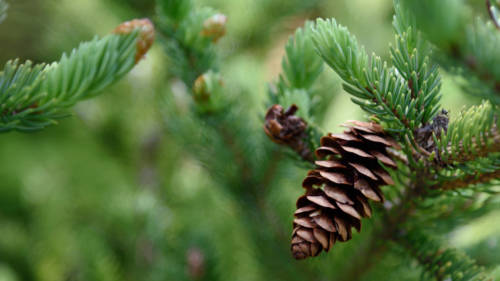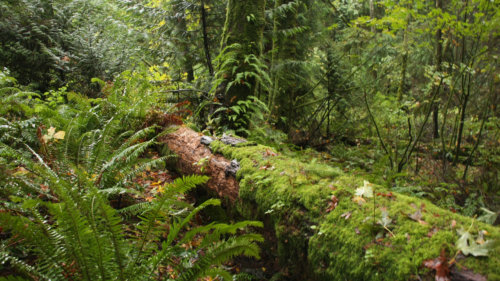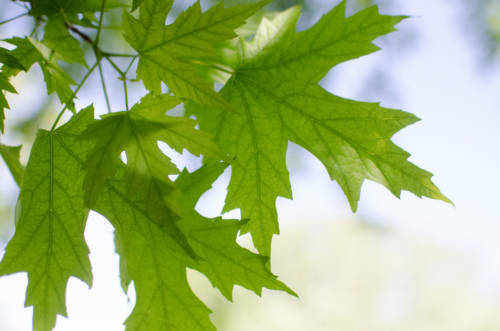How Forest Bathing Combats Stress
Inside our brain, neurons are constantly firing to keep up with the entropic onslaught of communication that surrounds us every day– e-mails, text messages, social media alerts, and news updates that constantly clamor for our attention. And yet, we sit in front of doctors quizzical of why we are unable to properly shut down at night to sleep. The frenzy of our world prompts an average of nine million Americans to take sleeping pills every night when what they really need is an RX for shinrin-yoku— a Japanese word that translates to “forest bathing.”
“Forest Bathing” is not quite as granola as you may think. It doesn’t require howling at the moon or bathing in the Amazon. As a practice that’s long been prescribed by Japanese medical practitioners, Forest Bathing is a way to support well being through sensory immersion in forests. All it calls for is a full-bodied breath taking in the aromas of the woods, observing the branches and lush undergrowth of a forest, and listening to water run.
Today, scientists nod at this simple concept, which has vast neuro-psychological benefits, that we’ve deemed cliché for far too long: stopping to smell the roses. (To be more specific, Forest Bathing is the ritualized practice of stopping to smell the pine or evergreen trees– but you get the point.)
In 1982 the Japanese Forest Agency introduced physiological experiments that were conducted on both men and women after they had exposure to a forest. Central nervous system activity, autonomic nervous activity, and stress response were evaluated, and the results demonstrated a notable reduction in stress, anger, anxiety, and sleepiness among those who spent time in the forest. The participants’ levels of cortisol (the pesky hormone responsible for belly fat, just FYI) had also dropped significant.
Scientists also tested the participants blood and discovered an increased amount of adiponectin– a hormone that regulates glucose and fatty acids while combating Type 2 Diabetes, cardiovascular disease, and other physical disorders. The simple act of moving through space, among the trees, and breathing in phytoncides (which are the woody essential oils responsible for the “pine” smell) can have significant immune-boosting benefits. Sometimes even the simplest scientific discoveries are the biggest milestones.
Today, forest bathing is an increasingly common practice under the medical trend colloquially referred to as “Nature RX”: a way to harness the power of nature to make us healthier, happier human beings.
Forest Bathing Guide
- Ditch your phone and camera and head to a wooded area– it can be inside your local park or even in your back yard.
- Roam without expectations. In Japan you may see a fox or monkey. In the U.S., an owl or a lizard. It’s totally possible that you’ll see nothing and maybe you’ll feel nothing– but there’s much to be gained from allowing yourself to be present.
- Pause to sit for 10-15 minutes.
- Pick up pine cones and press your palm against the bark of a tree. Research published in Matthew Silverstone’s cult book Blinded by Science suggests that tangible contact with a tree can improve mental illness, ADHD, depression, and headaches. Smell the flowers and feel the rich moisture of the soil beneath you.
- If you venture into the woods with loved ones, make a pact not to speak. Harvest your energy and cultivate your senses.
In Japan it is not uncommon for doctors to prescribe shinrin-yoku to patients and perform reviews upon their return, documenting the lasting benefits. The practice of forest bathing has also spread to forest commission programs in Korea, Taiwan, Wales, and Ireland– In the U.S., Dr. Robert Zarr is thought of as a pioneer in shinrin-yoku, which he proscribes to treat patients with asthma and obesity. (Zarr recently did an amazing interview with NPR in which he discussed his tendency to prescribe “Parks” as medicine.)
In Tennessee, the Smoky Mountains Wellness House at Blackberry Farms offers a 30-year-old spa offering forest bathing retreats where you are able to pick seasonal flowers and herbs and practice meditation and yoga.
We rely on trees for so many things already: oxygen, energy conservation, water conservation. We look to them to identify the change of seasons, we climb them for sport– neighborhoods with more trees even show a reduction in violence. With the advent of Forest Bathing, we can now look to them to fight free radicals that threaten our bodies with stress, as a simple way to make us happier human beings.
Take advantage of the forests, hills, mountains, and parks that surround you. Consider switching to a natural wood bathtub so that the cedar can soothe your skin, stimulate blood flow, and calm your mind. High-rise filled cities and technological innovation are two realities of the modern world, but even nature-phobic urbanites have much to be gained from a short, leisurely visit to the forest.
In need of some stress relief right now? Try this flower gazing meditation.





































